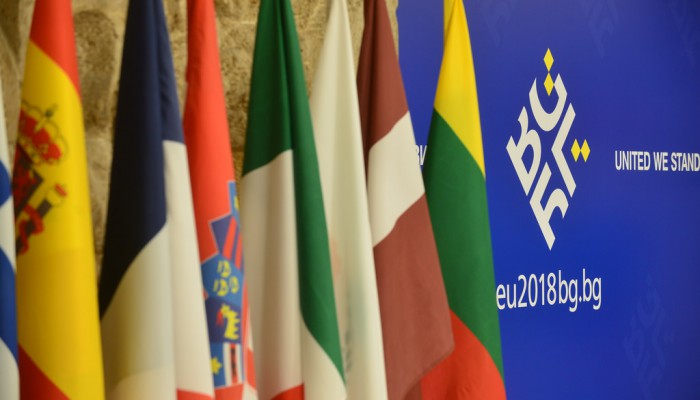Book Review: “The Mess We’re In – Managing the Refugee Crisis”
Andrew Bennetts, “The Mess We’re In – Managing the Refugee Crisis”, Trabagem Publishing, Camberwell 2017, 400 pages (available from Amazon and Booktopia)
Moved by the suffering and policy dilemmas of the European refugee crisis of 2015, this Melbourne business analyst took a sabbatical from corporate consulting to understand the refugee issue. He felt his standard advisory method would be useful: to provide clarity where there is “no obvious right answer, rather a series of trade-offs that need to be communicated clearly so that the pros and cons of each option is understood.” For this project, he aimed to marshal the facts, give context, summarise the issues, identify the refugees’ needs, and review the possible approaches, both globally and for Australia. Bennetts agrees that emotion and values are intrinsic to the issue, but logic can’t be ignored. The book has been around for over a year but captures the big recent events and is a wealth of information which remains relevant.
After being overwhelmed by persuasion pieces when he wanted facts, the book’s website tells us that he became determined to write the book he wanted to read. He picked up early on that “a feature of the current debate about the refugee situation is that it focuses on disagreements regarding approach options rather than the underlying principles from which they are developed.” The value of a book which questions all the assumptions fosters reflection, so there are many “teaching moments” here. He works to present all sides of the argument, separating his own as “The Position of this Book”, which should make teachers feel relaxed about using it. As a resource kit for every speaker or advocate who needs the facts at hand, it would be useful at every school where refugees are discussed. It is in large format textbook size and includes a glossary, many statistics and tables from official and reputable sources, and reports the pros and cons of multiculturalism, sovereignty, and migration aspects. It will be valuable to researchers and students seeking a consolidation in one place of perspectives from human rights law, economics, sociology, government policy, history, demography and morality.
As an independent observer, he does not shy away from discussing the risks of prioritising today’s problems without an eye for the long term, such as the uncapped obligations of the Refugee Convention, its feasibility undermined by today’s large numbers with no apparent way out. Arguably, his “consequentialism” is validated by Chancellor Merkel’s declarations in 2010 and 2015 that multiculturalism (which has a different meaning to here) has failed in Germany, indicating the historical roots of today’s anti-refugee sentiment.
If I can pick out his overarching principle it would be this: “Nations should help as much as possible, provided it doesn’t adversely damage their society.” There’s a big judgement call in the second clause, but I find myself agreeing with him after recent events (moreso since the book was published) which show that consequences must be considered. Like Brexit, like Trump, the size of the political backlash in Europe was underestimated by most, with bad and irrational EU management responsible. It is now likely to poison the well of reason and generosity for some time.
Despite a commendable objectivity and completeness in giving all sides to the argument, his own view leans towards the protection of liberal democracy in refugee receiving countries such as Australia, derived from his discussion of life boat ethics, and preferencing refugees with “cultural compatibility”. Another view would be that our demonstrated success in adaptation and cohesiveness, despite our White Australia foundations, justifies more optimism.
He goes outside the square of a clinical management review in relaying the Asylum Seeker Resource Centre’s view of the importance of preventing war and oppression to reduce the number of refugees. It’s therefore a surprise to read at p 56 that “the contribution of countries should not be dependent on any perceived responsibility they had in creating the plight of the refugees.” The contrary view would be well inside the square, promoting an incentive-based policy – you break it, you fix it – as a caution to those countries who take their war-making responsibilities lightly. In fact, this was one of the bases (as well as the Cold War alignment) of a widely agreed obligation for Australia to resettle a large number of Vietnamese refugees during the Fraser and Hawke period. The disgraceful Iraqi invasion of 2003 and subsequent destabilisation of Syria with its 11 million displaced people was the ultimate trashing of a rules-based order – if our sympathy for the victims is driven by our shame, it’s some compensation.
His conclusion? With recommendations this is fully one-third of the book, because it sets out all the pros and cons of eight holistic approaches, giving each a score based on its effectiveness, human rights, cost and implementation aspects. The approaches canvassed are As-Is, Australia 2015, German-led EU 2015, Japan 2015, Amnesty International 8-point Plan, Regional Frameworks, Development Zones, and Centrally Coordinated Burden Sharing. Development Zones based on the recent work of academics Betts and Collier are favoured, on the back of a Regional Framework. Strangely he sees these externally located zones as protected outposts of the refugees’ country of origin; how would the Rohingya refugees feel about that? Plenty of good discussions possible here.
